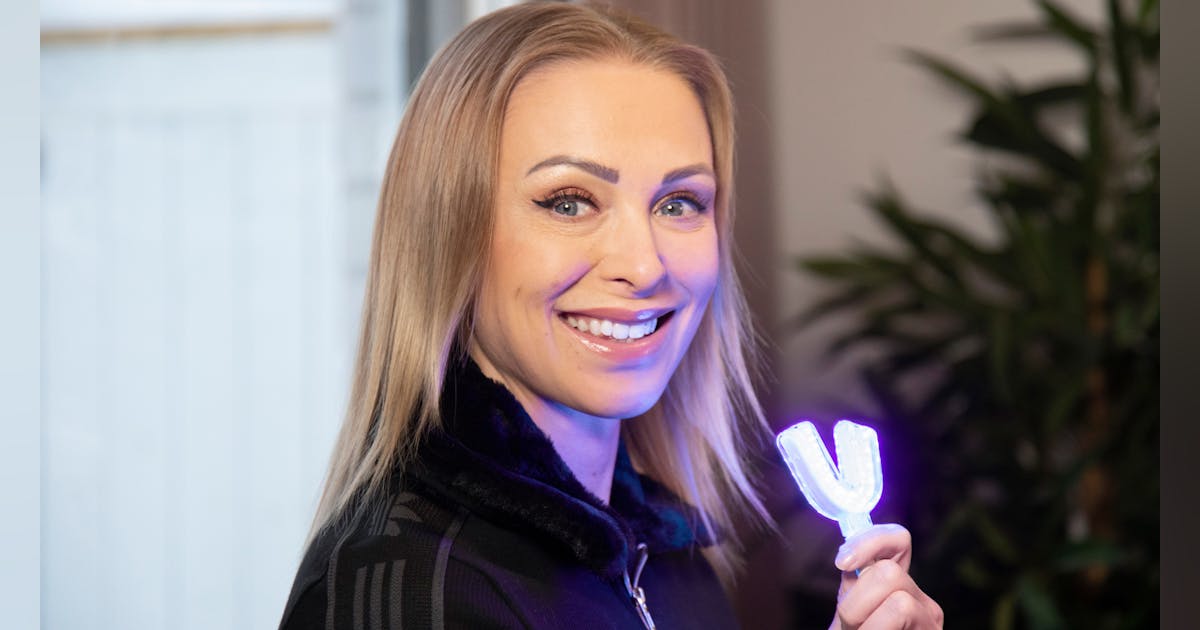Bleeding gums may seem like a minor annoyance, but experts warn they could indicate underlying health problems, which should not be taken lightly.
According to the Centers for Disease Control and Prevention, nearly half of adults ages 30 and older in the U.S. suffer from some form of gum disease.
Dr. Tristan Parry, a fellow at the Academy of General Dentistry and dentist in Summerfield, emphasized bleeding gums can be signs of gum disease, but also other serious health issues. He noted the real concern lies in the risks of inflammation.
“Being able to keep that inflammatory risk low helps with these other diseases, keeping the risks lower of those as well,” Parry explained. “Some of the big ones are going to be things like the cardiovascular, right? So, heart attack, stroke. Low-weight birth is an issue.”
Parry pointed out poor oral hygiene and bacteria are often the culprits behind inflammation, leading to bleeding gums and swelling. Studies reveal as people age, the likelihood of developing gum disease increases. Around 70% of adults over age 65 are at particular risk.
To prevent bleeding gums, Parry explained it is essential for a person to step up their oral hygiene. He recommended focusing on brushing teeth near the gum line and flossing. He added regular cleanings and consultations with a dental professional are also needed to mitigate the potential health risks of bleeding gums.
“It’s just like anything else in medicine,” Parry stressed. “The longer you wait, the worse it gets, so then, if you wait longer, it gets worse. It’s a compounding issue.”
Parry emphasized the crucial connection between dental health and overall heath, adding research shows a correlation between good oral health and longevity.
Disclosure: The North Carolina Dental Society contributes to our fund for reporting on Education, and Health Issues. If you would like to help support news in the public interest, click here.
get more stories like this via email
For the growing population of Latinos in Knoxville, having a medical interpreter can make a world of difference.
The nonprofit Centro Hispano de East Tennessee is bridging a language gap and advocating for its patients. Claudia Caballero, its CEO and president, said they noticed a shortage of medical interpreters regionwide. So, in collaboration with Direct Relief, the group launched a medical interpreter pilot program. The eight-month curriculum provides employment opportunities for marginalized documented or undocumented high school students while providing a critical service.
“It is a space where we teach young people who are already bilingual and sometimes trilingual, they’ll speak indigenous languages as well, the medical terminology and the ethics needed to become an interpreter,” she said. “Additional to those eight months of classes, they did 100 hours of practicum in our Community Health Care System.”
Students graduate from the program with a medical interpreter certificate. Caballero said currently, seven of the 10 graduates are working full time as medical interpreters. Three have medical careers and work part time as medical interpreters.
Caballero said one patient who is diabetic used to need her daughter to translate at medical appointments, which meant taking her out of school to help. Now, that patient has access to a regular medical interpreter at appointments and her daughter can stay in class.
“So, she stopped by our organization one day and met one of our medical interpreters and had a very first session with a medical interpreter in the room — and she didn’t even know that was something that she could ask for,” she said. “And she was so moved by being able to go with someone that she knew had her back, and that could ask the questions she needed. “
Caballero said Centro Hispano de East Tennessee serves as a cultural center and gathering place for Latinos in the region. In addition to this pilot program, it also offers workforce development, youth and family engagement services, community resources, and help for small businesses.
get more stories like this via email
More Missourians should be able to get routine dental care, with a recent change in the way providers are paid by the state.
MO HealthNet is paying higher rates to providers who see patients in the state’s version of Medicaid, which should encourage more of them to accept MO HealthNet patients.
Gary Harbison, executive director of the Missouri Coalition for Oral Health, said it is an important change because people may put off treating dental health issues if they are worried about the cost, but there is nothing minor about the problems.
“If untreated conditions go on, people sometimes end up in emergency rooms,” Harbison pointed out. “Sometimes they end up in the hospital, and sometimes they die from untreated dental conditions.”
Harbison noted access to oral care has an economic impact, too, since adults have an easier time at work when they are not dealing with dental pain, and children can go to school ready to learn and pay attention. It is estimated four in 10 children who are eligible for Medicaid coverage do not receive dental care.
Jessica Emmerich, dental medical facilitator for the coalition, said people in rural areas will notice the improved access the most. Now, they should be able to go to private-practice dentists, provided the dentists agree to take MO HealthNet patients.
“Which now allows MO HealthNet and the managed-care plans to pay comparable, if not more, to other insurances,” Emmerich explained. “I just encourage participations from dental providers to enroll with MO HealthNet and Missouri Medicaid.”
Many parts of Missouri do not have enough dentists, and the pandemic caused a reduction in the overall workforce. Most dental practices are still understaffed and some are not accepting new patients. Emmerich added the increased rates should help offset some of those economic factors.
get more stories like this via email
More than 20% of nursing positions in the Commonwealth remain vacant, according to the Kentucky Hospital Association – and combined with workforce shortages in other medical professions, the state is facing a massive health-care workforce crisis that could have crippling effects.
Ben Chandler, CEO of the Foundation for a Healthy Kentucky, said the shortages are both straining overworked existing providers and making it more difficult for residents to access quality care.
“We’re seeing shortages, really across the board. We’re certainly seeing shortages in nurses,” said Chandler. “We’re also seeing shortages for primary-care physicians. These are important entry points into the health-care system.”
The state needs at least 16,000 additional nurses to meet demand by 2024, according to data from the Kentucky Healthcare Collaborative.
State Sen. Stephen Meredith – R-Leitchfield – will be the keynote speaker at the Foundation for a Healthy Kentucky’s Bost Forum next week in Lexington, highlighting the challenges facing the medical community and proposing potential solutions.
He said the health-care system is the backbone of rural economies.
“If the health system in rural Kentucky collapses, then it’s just a chain-reaction event,” said Meredith. “It’s going to cause a crisis throughout the state. It’s something we need to take seriously, and it needs solutions today.”
According to the Bureau of Labor Statistics, nationwide around 1.8 million job openings are projected yearly between now and 2032, driven by increased demand and the need to replace workers who have permanently left health-care occupations.
get more stories like this via email



